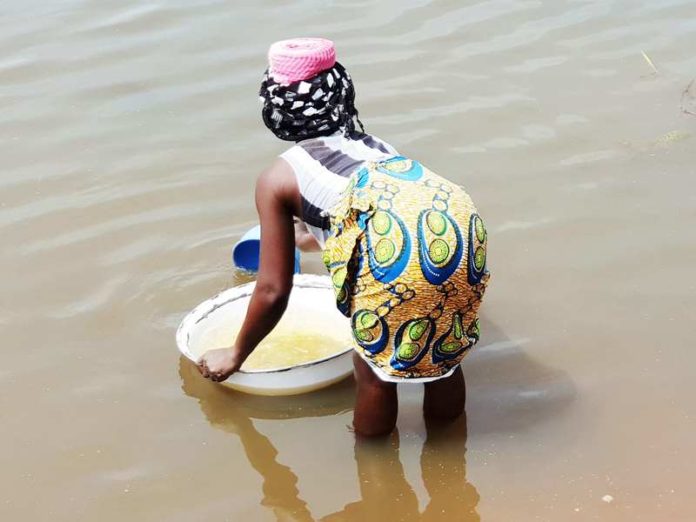The world’s economy is predicted to suffer a significant decline because of COVID-19. Some hard-hit economies will experience a negative growth rate. We are told Ghana’s growth in GDP, which was projected at 6.8 percent, could fall to 1.5 percent. One may ask if we should be concerned with economic growth at this time of a public health crisis. But this reminds me of the usual statement in development economics, which states that economic growth is a necessary condition but not a sufficient condition to say a country is developed.
The Sustainable Development Goals (SDGs) call for actions to end poverty, protect the planet, and ensure that all people enjoy peace and prosperity by 2030. The integrated 17 SDGs recognize that action in one area affects other outcomes and development must balance social, economic, and environmental sustainability. If our social infrastructure – Housing, Health, Education, and Water supply systems were so efficient, effective, and present in every community, as requires by SDG 11, 3, 4, and 6 respectively, we would not be so worried about COVID-19 induced economic growth rate. In the same vein, if our environment was protected and with little pollution, I think a less than 2% economic growth rate would not have pre-occupied our minds and the minds of African Finance Ministers because of the economic impact of COVID-19. The social consequences of COVID-19 are equally as important as economic growth when many are being left behind, especially in our rural communities.
Improving access to social services for rural communities to protect them from COVID-19
I have heard that Africa will experience the worse form of COVID-19 in the coming days if we fail to stop the spread. People of faith including me reject it. But the truth must be told. The spread of COVID-19 must be stopped in the cities and should not visit our rural communities. The truth of the matter is that, physical distancing or social distancing is a luxurious commodity in our rural communities. It will be impossible to expect people to wash their hands with soap under non-existing running water in most rural communities.
The sad reality is that, most rural population will prefer drinking to washing their hands under running water. The UNDP Assistant Administrator and Regional Director for Africa, Ahunna Eziakonwa, while recognizing the need to support the poorest to obtain water and soap in Sub-Sahara Africa in the fight against COVID-19, had this to say “some communities may not focus on handwashing because when they have clean water, they will prefer to drink it. The COVID-19 pandemic must lead to expedited efforts to address the unconscionable lack of access to clean water in so many places” in Africa.
Access to social services such as improved drinking water, housing, education, and health care is critical to achieving the SDGs, particularly in eradicating poverty among the poorest in rural Ghana. It is estimated that only 21% of Ghana’s population has access to basic sanitation and this situation is the same in most sub-Saharan African countries. A recent global survey by UNICEF and the World Health Organization (WHO) reveals that about 490 million people in sub-Saharan Africa lack access to safe and improved water supply and over 90% live in rural areas – a major threat to the achievement of the SDGs, particularly goal 6. Lack of access to these social services coupled with the impact of climate change will negatively affect the quality of life for most rural population, street children and homeless people, who are particularly vulnerable in Ghana and other parts of Africa.
Addressing the biggest global health threat: climate change
Climate change will have multiple impacts on human health. It will disturb natural systems, making it possible for diseases to spread or emerge in areas where they had been limited or had not existed especially among rural population. Climate change has been identified as “the biggest global health threat of the 21st Century. The current climate trends of extreme temperature and humidity will continue to present a public health crisis in most developing countries.
For instance, the fifth assessment report of the Inter-governmental Panel on Climate Change (IPCC) indicates that risks of undernutrition and vector-borne diseases are projected to generally increase due to climate change in developing countries especially in rural communities where there is lack of access to social services and lack of understanding of appropriate health sector response to climate change. So has the World Health Organization (WHO) estimates that climate change is expected to cause about 250 000 additional deaths per year between 2030 and 2050.
Time for more actions to better prepare for future crises
It has become very critical for us to continue to address climate change by implementing our climate actions, so as to limit its effects particularly on the most vulnerable. For instance, there is the need for more climate commitments like the recent move by Ghana and Switzerland to strengthen the mode of cooperation by signing an agreement under Article 6 of the Paris Agreement on climate actions to expand renewable energy access.
More importantly, we need to aggressively deal with issues of social exclusion and inequality to leave no one behind, especially in our fight against COVID-19. Other health crises such as Cerebro Spinal Meningitis (CSM), malaria, cholera among others must also be holistically addressed. This is because climate change will continue to slide back our efforts in dealing with these crises, calling on us not to forget commitments to environmental protection in these crucial times.
We have a chance to change our narrative in Ghana and Africa as a whole post COVID-19, if we focus on breaking all forms of inequities such as gender inequality, and inequalities in opportunities and access to social services. Our COVID-19 recovery efforts must deal with these inequality issues and appropriate health sector response to climate change to prepare us better for future pandemics.
By Stephen Sabunam Kansuk, Programme Analyst, Environment and Climate, UNDP, Ghana.





